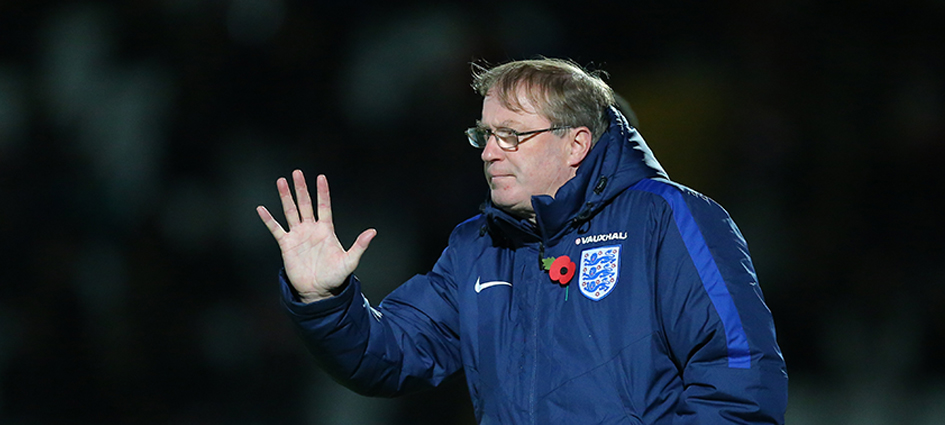Top tips

5 top tips to help young players cope with disappointment
- Neil Dewsnip
- 03 April 2019
England U18 head coach, Neil Dewsnip, provides his five top tips for helping young players cope with disappointment in the game.
1. Be honest
Disappointment for players often happens before the game when the line-up is announced. We try to manage that by being honest. We’ll name the team two or three days before the game which allows the players who are not starting to get their heads around the disappointment.
I always ask those that aren’t starting the game to respect the fact that we’ve got a game to win and if we do, then actually they’ve got a great chance of being in the next one.
At 17/18 years old the players are of an age where they could be playing for someone’s first team and that comes with the reality that they won’t always be in the team. You have to deal with the situation in a mature, sensible way.
2. Show support
Individual mistakes are another cause of disappointment. If the mistake happens early in the game, I’d be really reluctant to make a change as you really want to see if they can pull themselves through it, or if their teammates can pull them through – all of those things can be turned into positives.
Then at half-time, or during a break in the game, or if the ball is out of play on the far side, you can speak to the person. Sometimes there’s an injury and you can grab an individual, reassure them and make sure they’re ok.

3. Decrease the pressure
Dealing with player emotion at a tournament is a key part of being an international coach. The ideal scenario at a tournament is to win the first game or the next best is not to lose. If you lose the first game it’s a real stress then for staff and for the players because usually in a group of four, you definitely have to win the next two otherwise you’re struggling.
Our pitch is always, if we possibly can, try and win that first game. I use the words ‘if we can’, so it’s not, ‘we’ve got to’ which brings a different psychological aspect if you don’t get the result you want.
You need to reassure them, you need to support them through tough times
4. Be mature
It’s important not to be too emotional after a defeat. I can remember losing once at Goodison Park with Everton’s youth team many years ago to Bristol City and I probably walked around in a negative way.
The academy manager, who was a really good friend of mine and was more experienced than me at the time, came to me the next morning and said, “you’ve got 24 hours and then I expect you to be full of beans, full of energy, full of singing and dancing and to get on with it.”
The result was killing him as well, but he’d matured through experience. He was saying: people are depending on you - throw your ego away and do your job, and your job is to make sure that the staff are ok and that the players are ok.
5. Reassure them
You need to reassure young players and support them through tough times. The support may not be about football, it may be about things at home. That discussion needs to take place and I think what the player needs from you, providing you do believe in their talent, is reassurance.
If players are talented, the talent will always be there, so I think that’s where you’ve got to develop a relationship with that player where it’s about trust, where you can have a discussion with them and say, ‘so things are not great this week - I’m still going to pick you.’
Article image courtesy of Zemanek/BPI/REX/Shutterstock































